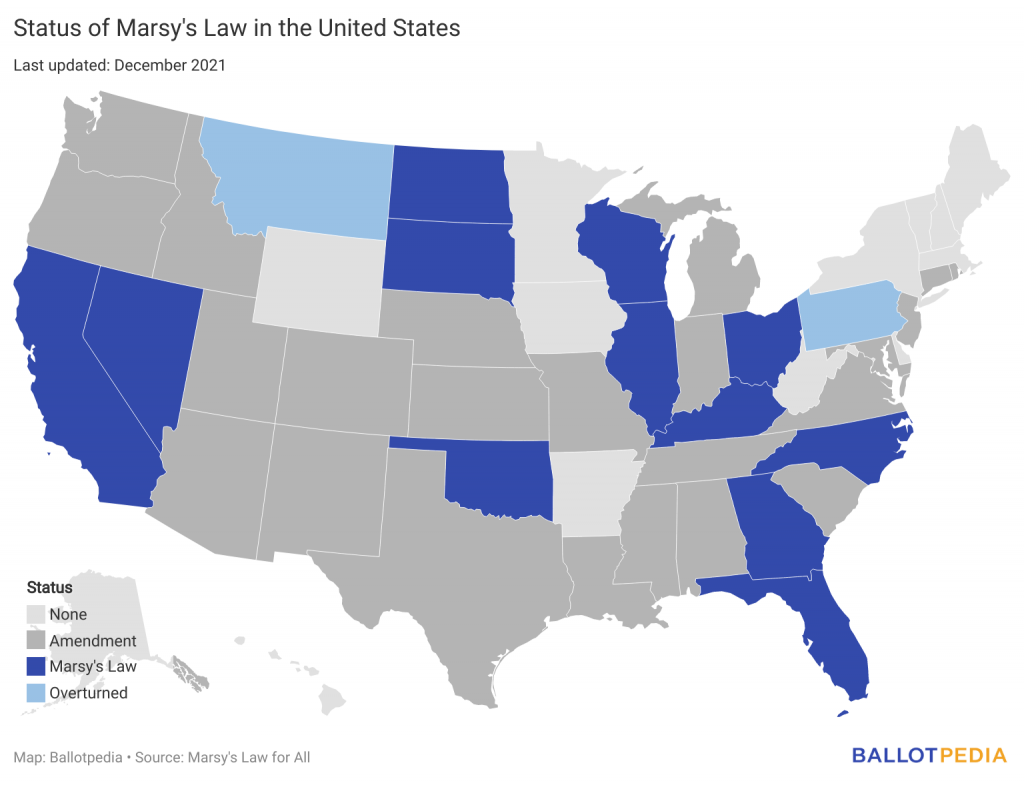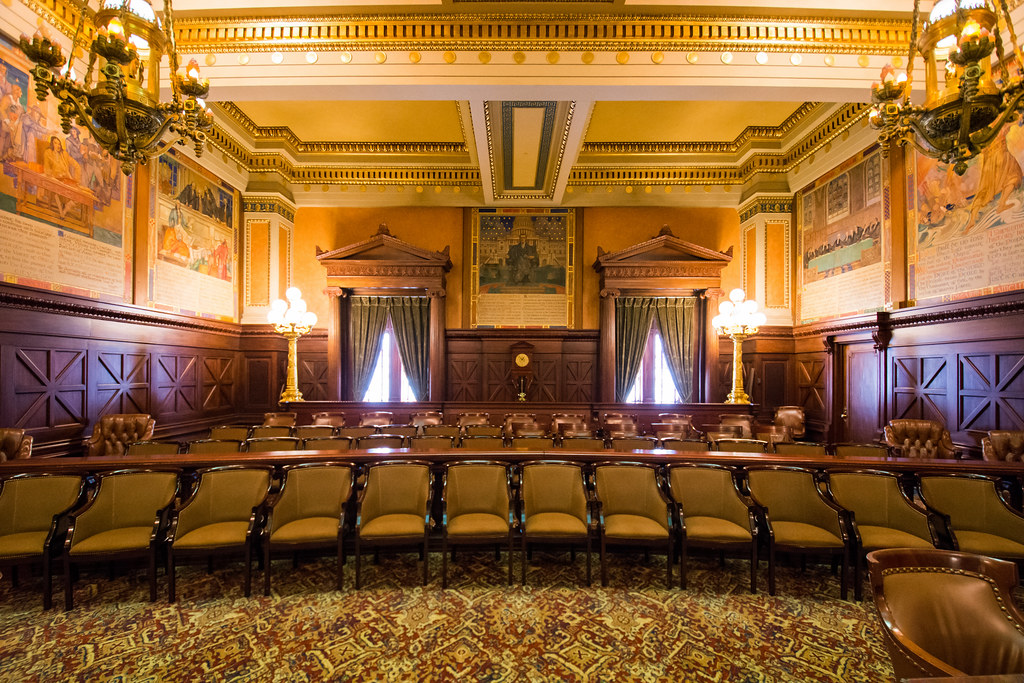In 2019, 74% of voters at the election on Nov. 5, 2019, voted to approve the Pennsylvania Marsy’s Law Crime Victims Rights Amendment. Results were never certified because the Commonwealth Court enjoined then-Acting Secretary of State Kathy Boockvar from certifying election results pending litigation. On Dec. 21, 2021, the Pennsylvania Supreme Court, in a 6-1 ruling, decided that the ballot measure violated the state constitution’s separate-vote requirement for proposed constitutional amendments.
In Pennsylvania, the separate-vote requirement states, “When two or more amendments shall be submitted, they shall be voted upon separately.” Pennsylvania is one of at least six states with a separate-vote requirement for constitutional amendments. In 2017, the Montana Supreme Court struck down a Marsy’s Law as violating that state’s separate-vote requirement.
Pennsylvania Supreme Court Justice Debra Todd (D) wrote the court’s opinion. She described the ballot measure as “a collection of amendments which added a multiplicity of new rights to our Constitution.” Justice Todd added, “… because those new rights were not interrelated in purpose and function, the manner in which it was presented to the voters denied them their right to consider and vote on each change separately.” Justice Sallie Mundy (R) dissented, writing that the constitutional amendment had a “singular common objective of establishing for victims of crime justice and due process in the criminal and juvenile justice systems.”
Marsy’s Law is a set of constitutional protections for crime victims that have been proposed and adopted in 12 states. The effort to institute Marsy’s Law across the U.S. has been primarily backed by Henry Nicholas, co-founder of Broadcom Corporation. In 2009, Henry founded Marsy’s Law for All LLC, the national organization advocating for Marsy’s Law. In Pennsylvania, Marsy’s Law for All spent $6.85 million advocating for the constitutional amendment.

The Pennsylvania Marsy’s Law Crime Victims Rights Amendment would have added a section addressing crime victims’ rights to the Pennsylvania Constitution Declaration of Rights. The ballot measure would have provided crime victims with 15 specific constitutional rights, including a right to proceedings free from unreasonable delay and a prompt and final conclusion of the case; a right to provide information to be considered before the parole of the offender; and a right to refuse an interview, deposition or other discovery request made by the accused. The ballot measure would have defined a crime victim as any person against whom a criminal offense or delinquent act was committed or who was directly harmed by the offense or act.
The constitutional amendment had the support of Gov. Tom Wolf (D), U.S. Sen. Bob Casey (D), and U.S. Reps. Scott Perry (R-10) and Fred Keller (R-12), and the Pennsylvania District Attorneys Association. The ACLU of Pennsylvania, League of Women Voters of Pennsylvania, and Pennsylvania Association of Criminal Defense Lawyers opposed the ballot measure.
Additional reading:


